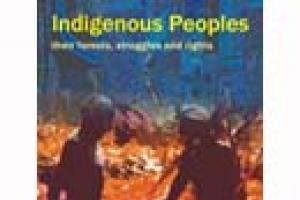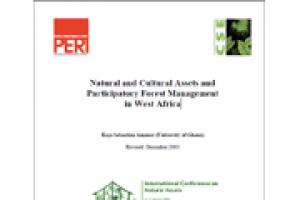Indigenous peoples living in the tropical rainforests of Central Africa are widely dispersed and identify their groups by a variety of names. Numbering a total of 300,000 to 500,000 people, those members of communities from several ethnic groups characterized by their small stature are identified under the generic name of “pygmies” (see WRM Bulletin Nº 119).
Africa (general)
Bulletin articles
18 July 2007
Other information
23 May 2007
At the end of April this year, the Brazilian Rural Landless Workers Movement (MST) was host at its Florestan Fernandes National School (Guararema, Sao Paulo) to almost 80 members of social movements and organizations from South America, Asia, Africa, and Europe attending the International Meeting on Monoculture Eucalyptus Plantations. The aim of this meeting was to define an agenda for joint action against the advance of monoculture tree plantations and pulp mills at global Southern level.
Publications
22 September 2006
Selection of articles published in the monthly electronic bulletin of the World Rainforest Movement, addressing the impacts of the oil palm plantations in the forestss.
Oil Palm. From Cosmetics to Biodiesel, Colonization Lives On
Other information
7 April 2006
This month WRM is launching a new occasional section to the bulletin: "Pulp Inc". The series will consist of profiles of companies involved in the pulp and paper industry.
In order to campaign effectively on the industry (and certainly before NGOs start talking about collaborating or cooperating with companies), we need to take a careful look at how the industry is structured and the nature of the companies involved in the industry: what they are and what they are not.
Publications
18 December 2005
By the World Rainforest Movement
Other information
13 September 2005
The African Forest Law Enforcement and Governance (AFLEG) process quickly succeeded the Asia process - even though, at the time (and still) actual practical outcomes of the Asia FLEG have remained elusive.
Bulletin articles
13 September 2005
Illegal logging has possibly been the most debated issue in the forestry sector at international level recently and has been attracting increasing attention in the last ten years. Governments, timber industries, donor agencies and NGOs seem to agree that it is one of the most important issues to be addressed. It also has been discussed in some high profile meetings.
Other information
27 October 2004
The indigenous Twa ‘Pygmy’ people of the Great Lakes region of central Africa are originally a mountain-dwelling hunter-gatherer people, inhabiting the high altitude forests around Lakes Kivu, Albert and Tanganyika – areas that have now become part of Rwanda, Burundi, Uganda and eastern Democratic Republic of Congo (DRC). The current Twa population is estimated at between 82,000 and 126,000 people.
Bulletin articles
29 July 2004
According to the United Nations Environment Programme, 38% of Africa’s coastline and 68% of its marine protected areas are under threat from unregulated development. Of concern are poorly-planned or regulated shrimp farming operations.
Bulletin articles
3 May 2004
The Twa were the first inhabitants of the equatorial forests of the Great Lakes region. Originally a high-altitude forest people, inhabiting the mountains of the Albertine Rift Area in Central Africa, they specialized in hunting and gathering. At present, the Twa of the Great Lakes region of Central Africa live in Burundi, eastern Democratic Republic of Congo (DRC), Rwanda and southwest Uganda.
Bulletin articles
11 March 2004
"No Dirty Gold" is the consumer campaign launched on February 11, 2004, by Earthworks/Mineral Policy Center and Oxfam, intended to shake up the gold industry and change the way gold is mined, bought and sold. Right before and a few days after Valentine's Day --a major occasion for gold jewelry sales in the U.S.-- activists distributed Valentine's cards with the message, "Don't tarnish your love with dirty gold" in front of major jewelry and watch stores, including Cartier's and Piaget's on 5th Avenue in midtown New York City.
Other information
16 December 2003
by Kojo Sebastian Amanor (University of Ghana), December 2003
Natural and Cultural Assets and Participatory Forest Management in West Africa



